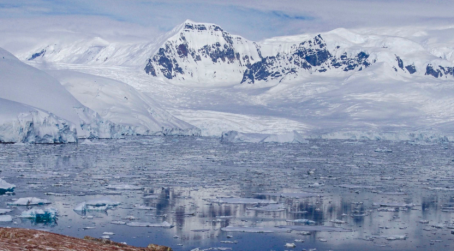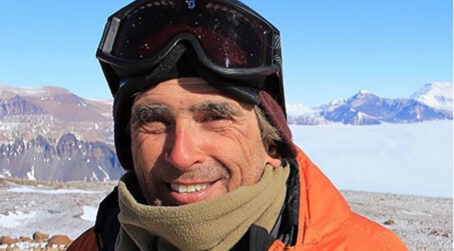The SCAR ANTOS Expert Group aims to establish a biologically focussed, integrated and coordinated Antarctic-wide observation, to identify and track environmental variability and change at biologically relevant scales, and to use this information to inform biological, physical, and earth science studies.

ANTOS (near-shore & terrestrial observation)
About
The Antarctic Near-Shore and Terrestrial Observation System (ANTOS) is a biologically-focussed initiative to coordinate a cross-continent and cross-national programme-scale assessment of environmental variability and change. It was established in response to the need identified in multiple sectors for long-term commitment to acquire basic information to underpin identification of trends and changes in iconic Antarctic ecosystems. Such information transcends short-term national funding regimes, yet is crucial for informing management approaches and strategies that national bodies must address.
Following a workshop held in August 2014 at the SCAR Open Science Conference in Auckland, ANTOS was established as a SCAR Action Group, with a remit to further develop the ideas behind ANTOS. The Action Group continued until 2016 at which point it was approved to transition to an Expert Group with a lifetime of eight years.
In 2015, the ANTOS International Workshop was held to develop an implementation plan, detailed in the Workshop Report. A series of next steps were formulated that would need to be addressed before the 2016 SCAR Open Science Conference (OSC) in Kuala Lumpur and these were undertaken by the Group.
An ANTOS workshop was held prior to the 2016 OSC. More information on the ANTOS News page.
News
News and Updates from the ANTOS Community

ANTOS|
ANTOS Open Community Meeting at Open Science Conference
…

ANTOS|SCAR News|
Obituary: Prof Craig Cary (1954-2024)
…
ANTOS|
New publication on Visual Imaging of Benthic Carbonate-Mixed Factories
A new publication, titled “Visual Imaging of Benthic Carbonate-Mixed Factories …
ANTOS|
ANTOS Workshop 2020
ANTOS will hold a workshop in conjunction with the SCAR …
Members
Contact
The co-Chairs of the ANTOS group are Ian Hogg and Sharon Robinson.
The Secretary of the ANTOS group is Megumu Tsujimoto.
Membership
If you are interested in joining ANTOS, sign up to the list server circulation list here.
Members of the ANTOS Steering Committee:
| Ian Hogg (Co-Chair) | Polar Knowledge Canada | Canada |
| Sharon Robinson (Co-Chair) | University of Wollongong | Australia |
| Megumu Tsujimoto (Secretary) | Keio University | Japan |
| Charles Lee (Technical advisor) | University of Waikato | New Zealand |
| Hyoungseok Lee (Data management) | KOPRI | Korea |
| Byron Adams | Brigham Young University | USA |
| Dana Bergstrom | University of Wollongong | Australia |
| Claudia Colesie | University of Edinburgh | UK |
| Steve Colwell (Physical Sciences Group representative) | British Antarctic Survey | UK |
| Pete Convey | British Antarctic Survey | UK |
| Vonda Cummings | NIWA (National Institute of Water and Atmospheric Research) | New Zealand |
| Dolores Deregibus | Instituto Antártico Argentino | Argentina |
| Mauro Guglielmin (ANTPAS representative) | Insubria University | Italy |
| Thomas Saucède | Université Bourgogne Europe | France |
| Jane Wasley | Australian Antarctic Division | Australia |
| Tengku Ibrahim | Universiti Teknologi MARA | Malaysia |
| Stefano Schiaparelli | Università degli Studi di Genova | Italy |
| Elie Verleyen | University of Ghent | Belgium |
Resources
Publications, Data and Links of interest to the Antarctic Near-shore and Terrestrial Observation community
